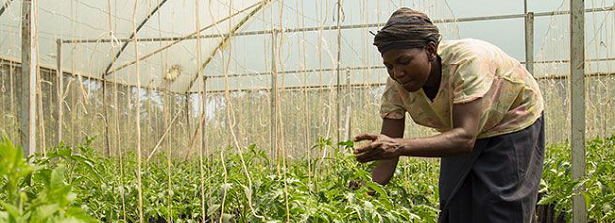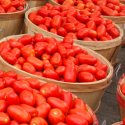What is climate smart in Africa’s horticulture?

Climate change is and will continue to be a major challenge for East and Southern African horticulture. Its effects on horticulture are lower water availability, lower soil health, higher disease pressure and planning disruptions. Understanding which solutions work for horticulture entrepreneurs (and which are not) will help the AgriPproFocus network’s know-how to adapt and mitigate horticulture to climate change. With support of the Food & Business Knowledge Platform, AgriProFocus and Verbos Business Development carried out a scoping study of business drivers for Climate Smart Horticulture in Kenya, Zambia and Tanzania.
A mapping was done of climate smart agriculture (CSA) solutions currently being adopted by horticultural producers in and around the AgriProFocus networks in these three countries.
Please download the complete network mapping.
Most of the 21 practices found, related to improved production technology. Inputs for production and for getting it fresh on the market are a good second. The mapping found few services. In ten out of 21 practices listed, there was a direct link to Dutch horticulture. In Zambia no practice was linked to the Dutch. In Kenya and Tanzania, the “Dutch” practices range from innovative (solar pumps, soil test) to proven elsewhere (water harvesting, breeding, training). The search for specific examples did not aim to produce an exhaustive overview. Rather, the search is meant as inspiration for further network learning and action.
The mapping paid particular attention to business drivers, i.e. to resources or processes vital for the continued success and growth of a company. Business drivers were primarily expected in the CSA pillars a) productivity and b) adaptation as these directly affect revenues and costs. A business driver related to the CSA pillar c) mitigation was identified in the “Cool Farm Tool”, which quantifies carbon emission reductions which may be sold on the market.
Many of the practices identified are options for SME agripreneurs. For them, seeing is believing which means that demo plots, demo farms and demo villages are the best means to get agripreneurs informed and aware. AgriProFocus is to step up the visibility of these efforts for farmer entrepreneurs in our network to enhance further mutual learning.
Members and partners in the network may also want proof of concept, including modelling tools with cash flow projections. It is recommended that AgriProFocus next work sessions (Kenya, Tanzania, Zambia, Netherlands) focus on what members and partners do and need to improve the offer of support in their climate programmes.
The findings of the mapping and two specific practical tools were presented and discussed in an expert session with Dutch horticulture companies and experts at World Horti Centre in the Netherlands in November 2018. Among the recommendations that emerged, was the suggestion to develop a complete and (more) coordinated offer from the Dutch horticulture suppliers to African SME agripreneurs. For this, the sector could learning from the Amiran approach, which combines simple greenhouse, inputs, finance and advice in a package deal.
Specific Dutch technologies that could be offered to the horticultural sector partners in Africa, are amongst others: the smart usage of new crop varieties; soil treatment; easy to use irrigation techniques, reduction of postharvest losses; cold chain logistics; more efficient and sustainable production, processing and distribution processes; optimal water usage in production and processing (re-use of waste water and less consumption); optimal usage of residual flows; and in the reduction of and innovations in packaging.
| Interesting links |
|






